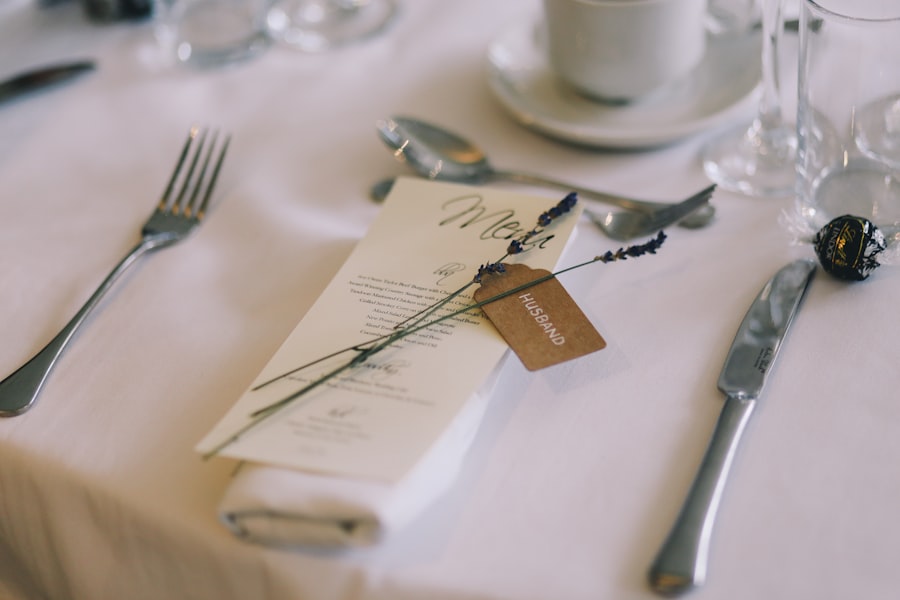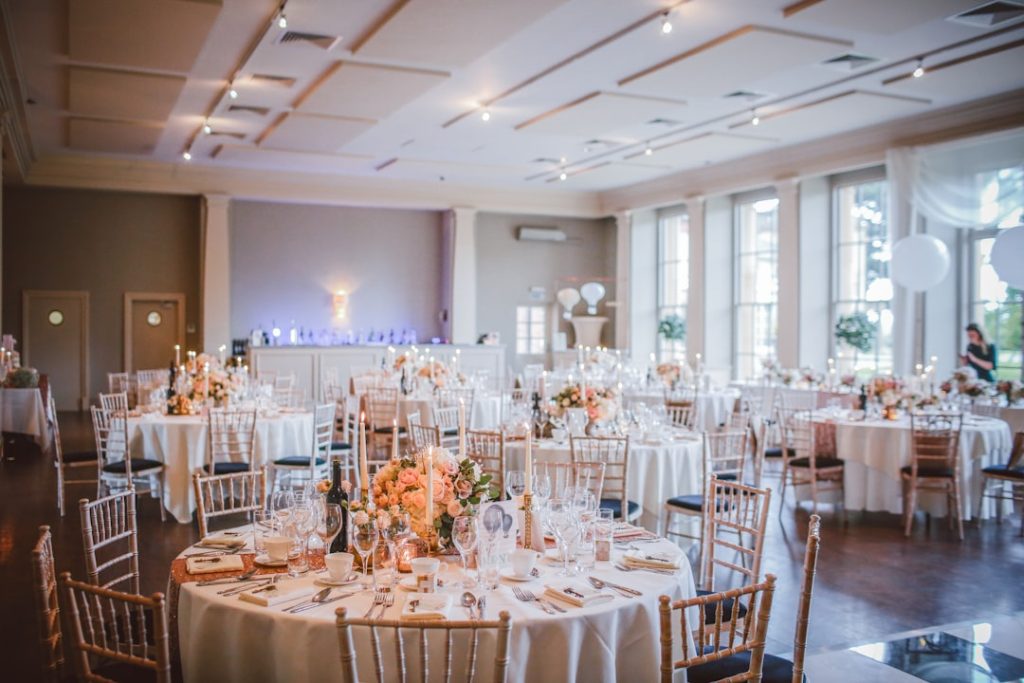When we think about the intricate details that go into planning a wedding, it becomes clear that the role of a wedding planner is multifaceted and essential. A wedding planner is not just a coordinator; they are a creative partner, a logistical expert, and a calming presence during what can often be a stressful time. Their primary responsibility is to help couples navigate the myriad of decisions that come with planning a wedding, from selecting the perfect venue to managing the guest list.
They serve as a bridge between the couple’s vision and the reality of executing that vision, ensuring that every detail aligns with the couple’s desires and budget. Moreover, wedding planners bring a wealth of experience and industry knowledge to the table. They are familiar with local vendors, venues, and trends, which allows them to provide valuable recommendations tailored to our specific needs.
Their expertise can help us avoid common pitfalls and make informed decisions that enhance our wedding experience. By understanding our preferences and priorities, they can curate a personalized approach that reflects our unique love story, making the planning process not just manageable but enjoyable.
Key Takeaways
- A wedding planner plays a crucial role in helping couples plan and execute their dream wedding, from managing vendors to coordinating the timeline of the event.
- Hiring a wedding planner can alleviate stress, save time, and ensure that the wedding day runs smoothly, allowing the couple to fully enjoy their special day.
- When looking for the right wedding planner, consider their experience, style, and personality, and be sure to ask for references and review their portfolio.
- During the initial consultation, expect to discuss your vision, budget, and any specific requirements, as well as to get a sense of the planner’s approach and expertise.
- Wedding planners typically offer a range of services, including budget management, vendor coordination, timeline creation, and on-the-day coordination, tailored to the couple’s needs and preferences.
- Effective communication with your wedding planner is key to ensuring that your vision is understood and executed, so be open and clear about your expectations and preferences.
- Collaborate with your wedding planner to bring your vision to life, sharing ideas, providing feedback, and working together to create a personalized and memorable wedding experience.
- Contrary to common misconceptions, hiring a wedding planner can actually save money, as they can negotiate vendor discounts and prevent costly mistakes, while also reducing stress for the couple.
The benefits of hiring a wedding planner
One of the most significant benefits of hiring a wedding planner is the time and stress they save us. Planning a wedding can be an overwhelming task, often requiring countless hours of research, meetings, and coordination. By entrusting this responsibility to a professional, we can focus on what truly matters—celebrating our love and enjoying the journey leading up to our big day.
A wedding planner takes on the logistical burdens, allowing us to spend more quality time with family and friends during this special period. Additionally, wedding planners often have established relationships with vendors, which can lead to better deals and more reliable service. They know who to trust and who to avoid, which can be invaluable when it comes to making decisions about catering, photography, and entertainment.
This insider knowledge not only helps us stay within budget but also ensures that we receive high-quality services on our wedding day. Furthermore, having a planner by our side means we have an advocate who can handle any unexpected issues that may arise, providing peace of mind as we approach our wedding date.
How to find the right wedding planner for you

Finding the right wedding planner is crucial to ensuring our vision comes to life seamlessly. The first step in this process is to conduct thorough research. We can start by asking friends or family for recommendations or searching online for local planners with positive reviews.
Once we have a list of potential candidates, we should take the time to review their portfolios and websites to get a sense of their style and approach. This initial research will help us narrow down our options to those who align with our aesthetic and values. After identifying a few planners that resonate with us, we should schedule consultations to discuss our vision and gauge their compatibility with our personalities.
During these meetings, we can ask about their experience, approach to planning, and how they handle challenges. It’s essential to feel comfortable and confident in our planner’s abilities, as they will play a significant role in one of the most important days of our lives. By trusting our instincts and choosing someone who understands our vision, we set the stage for a successful collaboration.
What to expect during the initial consultation with a wedding planner
The initial consultation with a wedding planner is an exciting opportunity for us to share our dreams and ideas while also learning about their services. Typically, this meeting will begin with an introduction where we can discuss our love story, engagement journey, and what we envision for our wedding day. This is our chance to express our preferences regarding themes, colors, venues, and any specific elements we want to incorporate into the celebration.
During this consultation, we should also expect the planner to ask us questions about our budget, guest list, and timeline. They may provide insights into what is realistic based on our expectations and help us prioritize elements that are most important to us. This dialogue not only helps them understand our vision but also allows us to gauge their expertise and approach to planning.
By the end of this meeting, we should have a clearer understanding of how they can assist us in bringing our dream wedding to life.
The services typically offered by wedding planners
Wedding planners offer a wide range of services tailored to meet the diverse needs of couples. At the core of their offerings is full-service planning, which encompasses everything from initial concept development to day-of coordination. This comprehensive approach ensures that every detail is meticulously managed, allowing us to enjoy the planning process without feeling overwhelmed by logistics.
In addition to full-service planning, many planners offer partial planning or day-of coordination services. Partial planning is ideal for couples who have already made some arrangements but need assistance in finalizing details or managing vendor relationships. On the other hand, day-of coordination focuses on executing the plans we’ve already established, ensuring that everything runs smoothly on the big day itself.
Regardless of the level of service we choose, wedding planners are equipped with tools and resources that streamline the process and enhance our overall experience.
The importance of communication with your wedding planner

Effective communication is paramount when working with a wedding planner. From the outset, we should establish open lines of communication to ensure that our ideas and concerns are heard and addressed throughout the planning process. Regular check-ins allow us to stay updated on progress while also providing opportunities for feedback and adjustments as needed.
This collaborative approach fosters a strong partnership between us and our planner. Moreover, clear communication helps prevent misunderstandings that could lead to stress or complications down the line. We should feel comfortable discussing any changes in our vision or budget with our planner so they can adapt accordingly.
By maintaining transparency and being proactive in sharing information, we create an environment where our planner can effectively advocate for us and bring our dream wedding closer to reality.
How to work with a wedding planner to create your dream wedding
Working collaboratively with a wedding planner is key to transforming our vision into reality. To start, we should be prepared to share as much information as possible about our preferences, style, and any specific ideas we have in mind. This includes discussing colors, themes, venues, and even personal touches that reflect our relationship.
The more details we provide, the better equipped our planner will be to curate options that align with our vision. As we move through the planning process, it’s essential for us to remain engaged and involved while also trusting our planner’s expertise. We can schedule regular meetings or check-ins to review progress and make decisions together.
This partnership allows us to feel connected to the planning journey while benefiting from their professional insights. By embracing this collaborative spirit, we can create a wedding that truly reflects who we are as a couple.
Common misconceptions about hiring a wedding planner
Despite the many advantages of hiring a wedding planner, several misconceptions persist that may deter couples from seeking professional assistance. One common myth is that planners are only for extravagant weddings or those with large budgets. In reality, wedding planners cater to various budgets and styles; their expertise can help us maximize our resources regardless of how much we have to spend.
Another misconception is that hiring a planner means relinquishing control over the planning process. On the contrary, a good wedding planner values collaboration and encourages us to be involved in decision-making while providing guidance along the way. They are there to support us in achieving our vision rather than dictating how things should be done.
By dispelling these myths, we can better appreciate the invaluable role that wedding planners play in creating memorable celebrations tailored specifically for us. In conclusion, engaging a wedding planner can significantly enhance our wedding planning experience by providing expertise, support, and peace of mind throughout the process. By understanding their role and benefits while fostering open communication and collaboration, we can work together to create a celebration that reflects our unique love story—one that we will cherish for years to come.
